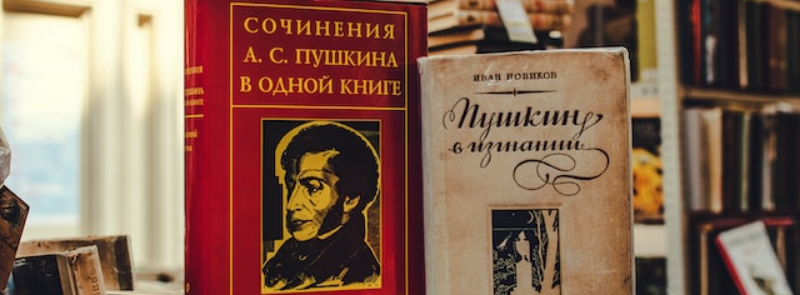
When It Occurs
Every June 6th
Timeline
Days Passed (992)
# Hashtags
#RussianLanguageDay #AlexanderPushkin
In 2010, the United Nations Educational, Scientific and Cultural Organization (UNESCO) inaugurated Russian Language Day. This day, observed on June 6th, coincides with the birthday of Alexander Pushkin, a distinguished Russian poet and the pioneer of modern Russian literature.
Russian Language Day commemorates the world's seventh most spoken language, and its intention is to foster a heightened level of collaboration to address the challenges of the 21st century.
Origins and Purpose
- Inception: Russian Language Day was established by the United Nations Educational, Scientific and Cultural Organization (UNESCO) in 2010 as part of its efforts to promote linguistic and cultural diversity and to support the equal use of all six official languages of the UN (Arabic, Chinese, English, French, Russian, and Spanish).
- Objectives: The day aims to celebrate the Russian language, promote its use, and recognize its contribution to global culture and communication.
Significance of June 6th
- Alexander Pushkin's Birthday: June 6th was chosen to honor the birth of Alexander Pushkin (1799-1837), considered the father of modern Russian literature. Pushkin's works have had a profound influence on Russian language and literature.
Importance of the Russian Language
- Global Reach: Russian is one of the six official languages of the United Nations and is spoken by over 258 million people worldwide, making it one of the most widely spoken languages.
- Cultural Heritage: Russian literature, music, art, and cinema have made significant contributions to world culture. Figures like Leo Tolstoy, Fyodor Dostoevsky, and Pyotr Ilyich Tchaikovsky are celebrated globally.
- Scientific Contributions: Russian has been a key language in fields such as space exploration, physics, mathematics, and engineering, with significant contributions from Russian scientists and researchers.
Celebrations and Activities
- Literary Events: Readings and performances of Russian literature, particularly works by Alexander Pushkin, are organized in many countries.
- Educational Programs: Universities and schools hold special programs, lectures, and workshops to promote the study of the Russian language and literature.
- Cultural Exhibits: Museums and cultural centers may host exhibitions showcasing Russian art, history, and cultural artifacts.
- Media and Social Media Campaigns: Media outlets and social media platforms feature special content, discussions, and promotions related to Russian language and culture.
How to Get Involved
- Learn Russian: Take the opportunity to start learning Russian or improve your proficiency. Many online resources and language learning apps offer courses in Russian.
- Read Russian Literature: Explore works by famous Russian authors like Pushkin, Tolstoy, Dostoevsky, Chekhov, and Nabokov. Reading translated works can also provide insights into Russian culture.
- Attend Events: Participate in local or virtual events celebrating Russian Language Day, such as literary readings, cultural performances, and educational seminars.
- Share on Social Media: Use hashtags like #RussianLanguageDay to share your experiences and join the global conversation about the Russian language and its cultural impact.
- Engage with Russian Culture: Watch Russian films, listen to Russian music, and learn about Russian history and traditions to deepen your understanding and appreciation of the culture.
Key Figures in Russian Literature
- Alexander Pushkin: Known as the father of modern Russian literature, his works include "Eugene Onegin" and "The Captain's Daughter."
- Leo Tolstoy: Author of epic novels such as "War and Peace" and "Anna Karenina."
- Fyodor Dostoevsky: Renowned for his novels "Crime and Punishment," "The Brothers Karamazov," and "The Idiot."
- Anton Chekhov: A master of short stories and plays, including "The Cherry Orchard" and "Uncle Vanya."
- Vladimir Nabokov: Best known for his novel "Lolita," written in English, but also an important figure in Russian literature.
Global Impact
Russian Language Day helps to:
- Promote Multilingualism: By recognizing the importance of Russian, the UN encourages the use of multiple languages, fostering greater understanding and cooperation among nations.
- Preserve Cultural Heritage: Celebrating Russian language and literature helps preserve and promote the rich cultural heritage associated with the language.
- Enhance Communication: As a UN official language, Russian plays a crucial role in international diplomacy, communication, and cooperation.
Russian Language Day is a celebration of the linguistic and cultural richness of the Russian language, highlighting its global significance and encouraging people around the world to engage with and appreciate this important aspect of world heritage.


